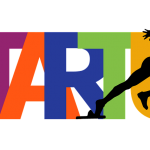How Recruiters Can Develop Effective Skills Tests
The key to running a successful business is having the right team. Every business wants to attract the best in the industry, but that means using the right tools to sort through prospective hires. Any person applying for a position will undoubtedly talk up their qualifications to sell themselves as the best person for the job, but while they may be qualified, it’s really about finding the best fit. Here are a few ways to make the recruitment process a little easier so that you can be sure to find the best employee for your organization.
Make Use of The Sample Test
Take some basic scenarios from the day-to-day functions of the job. Presenting them neutrally, have your prospective hire work through them and give their ideas on how to resolve some of the typical issues they might encounter in their work. This allows you to see their workflow in a realistic situation. This goes beyond a skills test and tests critical thinking for jobs that require more than technical abilities to perform, such as human resources and management positions.
Find The Best Fit With The Personality Test
Many candidates will have the education and experience you’re looking for, but a personality test can help you to determine if a particular person has the personality that will mesh well with your organization. The Myers-Briggs Type Indicator is a well-known test that has become a standard in many industries and can help determine if a prospective employee has the qualities you desire in a particular position. Not only can the MBTI gauge whether an employee will be a good fit with existing workers, but also if their personality type is well suited to the position itself.
Job Knowledge Exams Test Practical Skills
Testing a candidate’s existing knowledge of skills required on the job can be helpful in determining whether a candidate will be able to perform the technical aspects of a job. For instance, specific skills test for expert technical acumen in an IT position or the ability to craft a document in a writing position can help determine a candidate’s readiness.
Ensure No Biases Exist In Your Processes
With one look at a resume, a hiring manager or recruiter can ascertain information about a candidate. Do they have any particular accolades or industry awards? How about any specialized degrees or software proficiency? However, hiring managers and recruiters may make implicitly biased judgments based on gender or ethnicity based solely on a person’s name on a resume. If a company is comprised predominantly of one particular demographic, an excellent employee can be passed over by not fitting in to that existing group. Certain tests can also prove discriminatory in their design by potentially eliminating candidates unfairly.
Biases In Tests
In one case, a multiple-choice psychometric test was declared discriminatory by eliminating a candidate with a spectrum disorder when an alternative format was not made available to her. In other research, certain aptitude tests were found to be inherently biased towards certain segments of the population. While testing is legal, the application and methods used must be consistently applied toward all candidates and must show relevance to the position for which the candidate is applying. Consulting with a professional testing resource or agency can help in developing tests which meet guidelines for equal opportunity recruitment exams.







GIPHY App Key not set. Please check settings